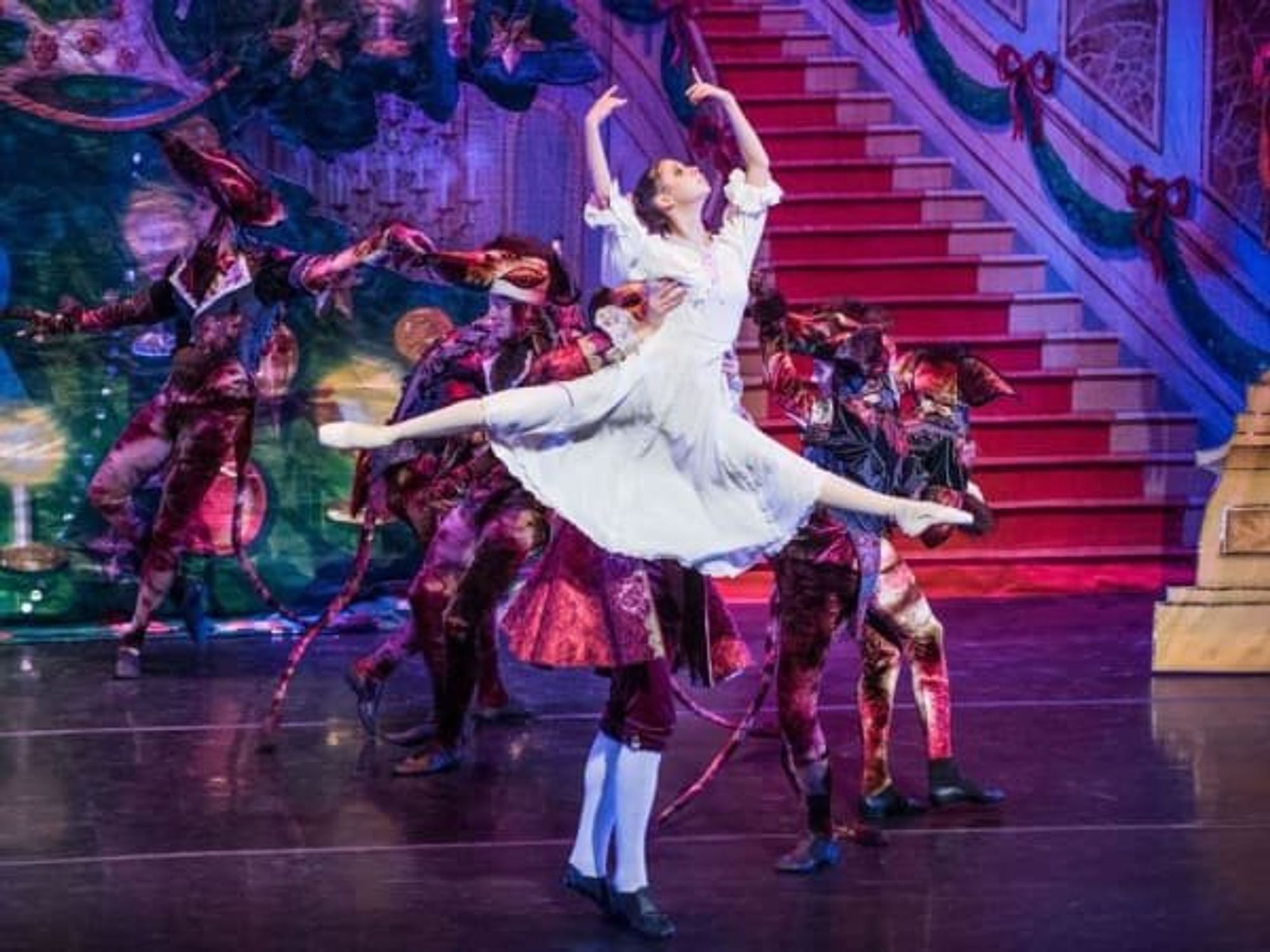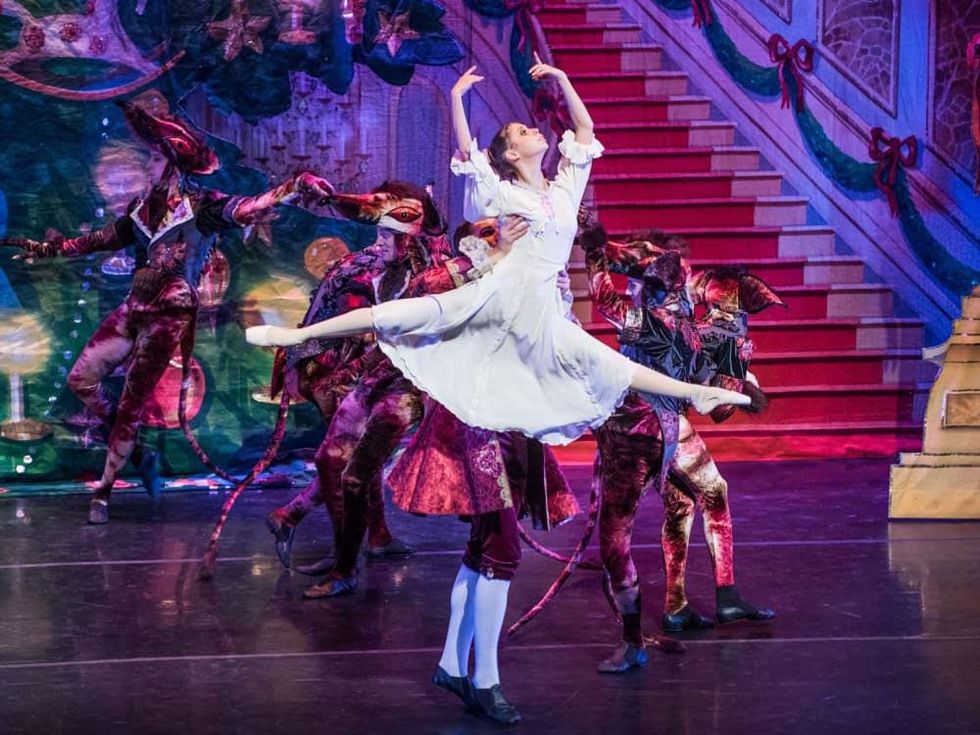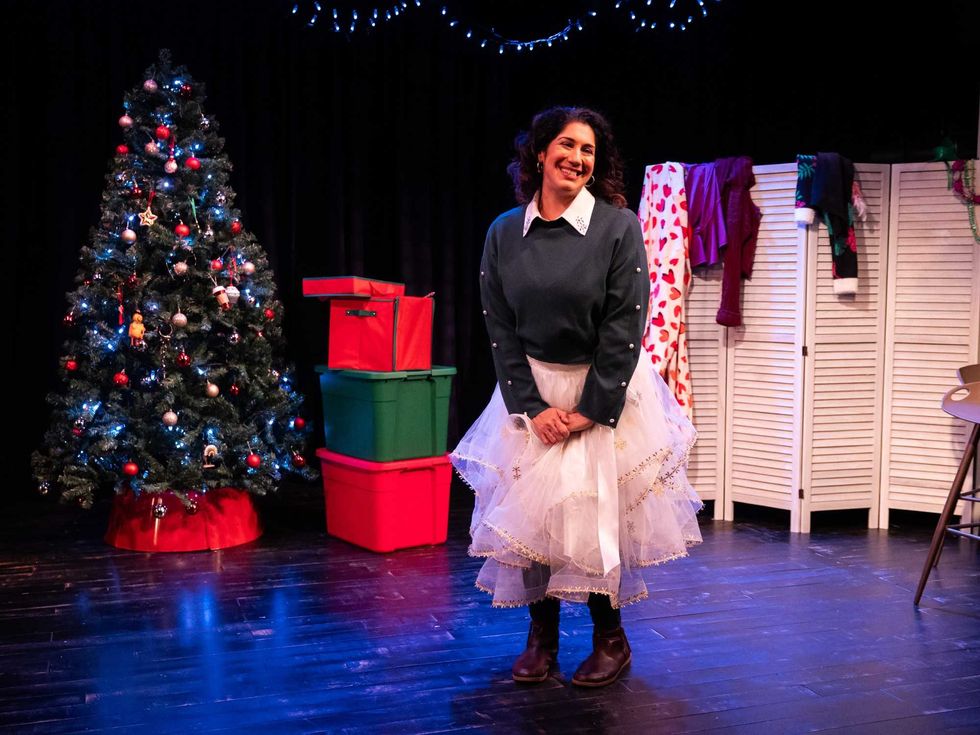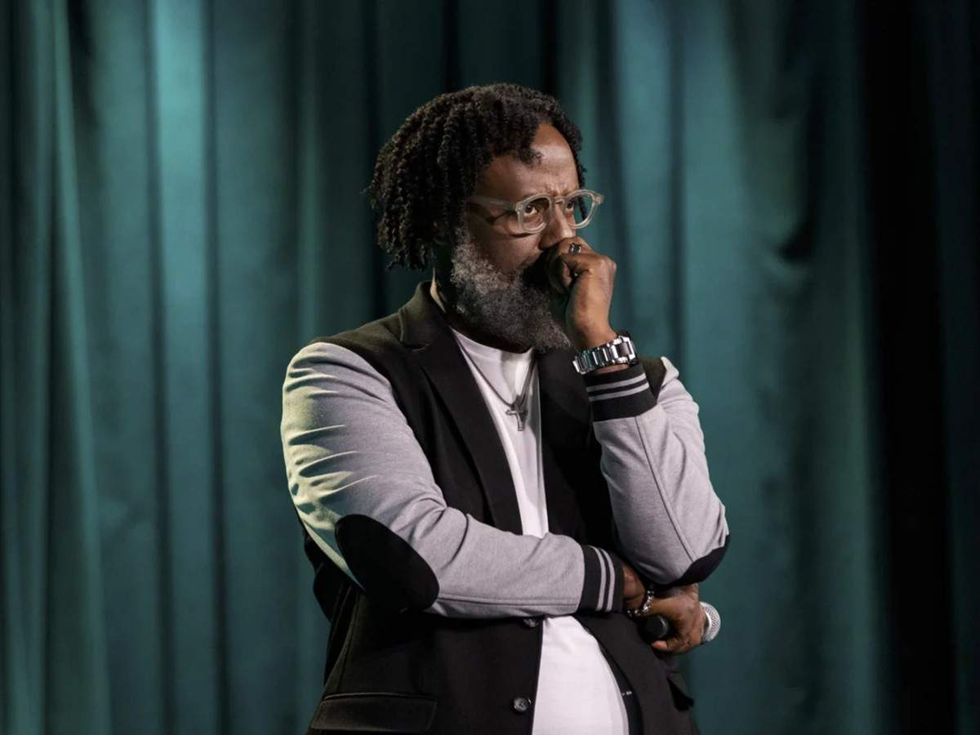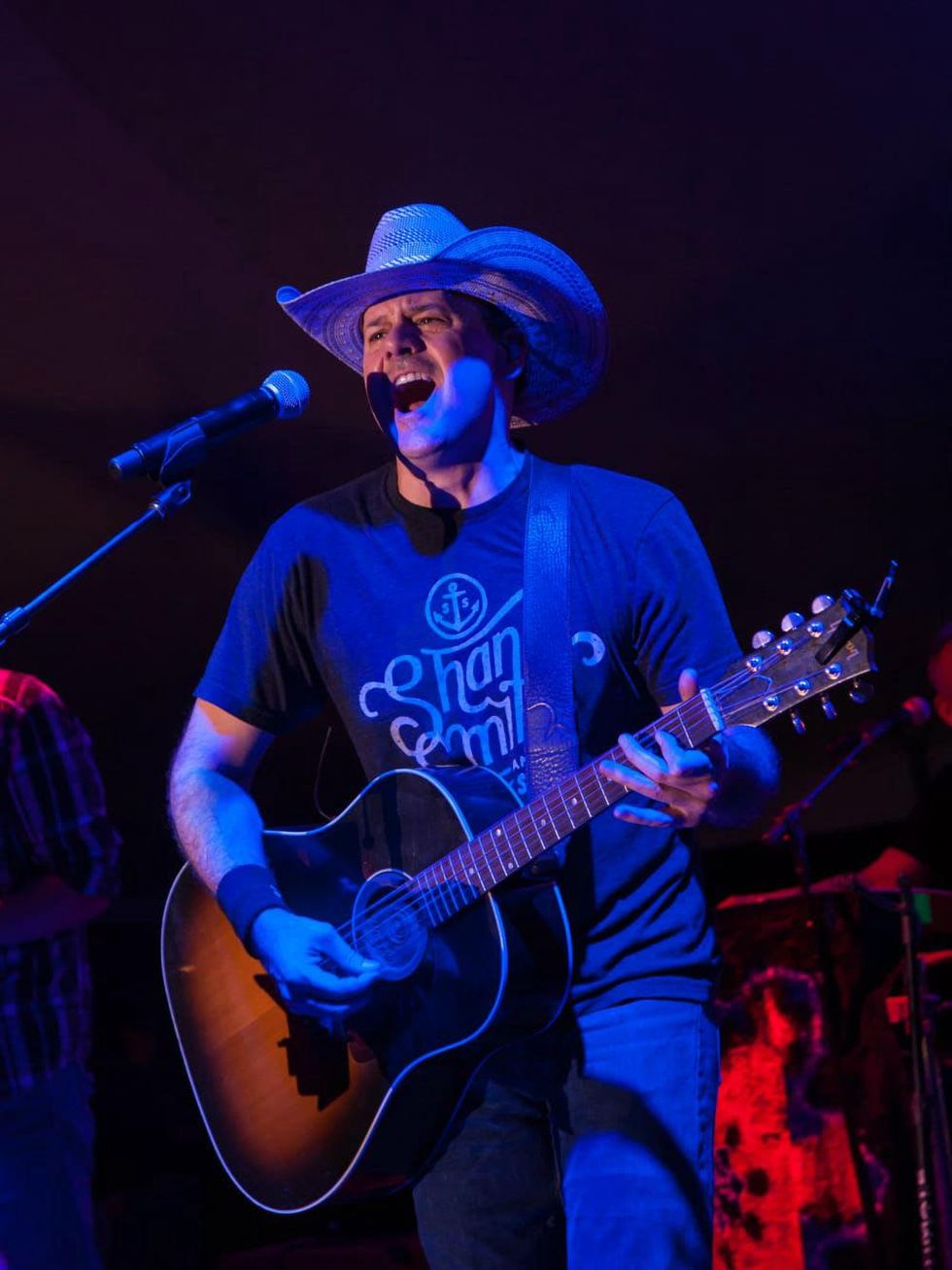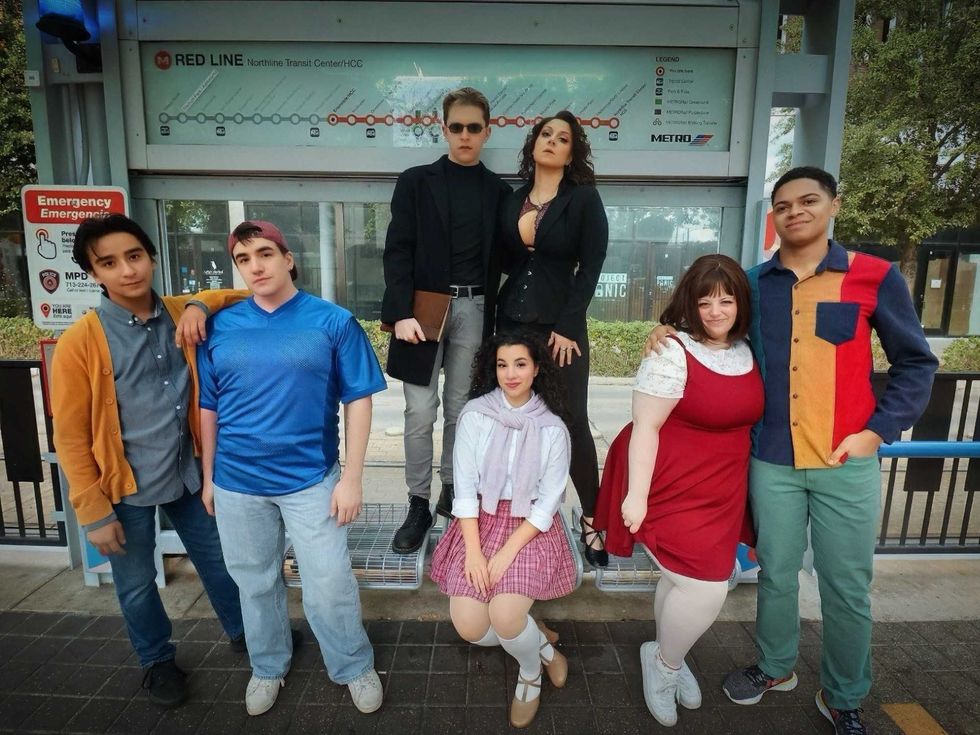Saturday Night Fever
Life begins as a concert: Musiqa examines the link between music and language inpoetic show
 Houston Ballet II artists Sareen Tchekmedyian and Harper WattersPhoto by by Amitava Sarkar
Houston Ballet II artists Sareen Tchekmedyian and Harper WattersPhoto by by Amitava Sarkar Anthony K. Brandt, composer, co-founder and artistic director of Musiqa.Photo by Beryl Striewski
Anthony K. Brandt, composer, co-founder and artistic director of Musiqa.Photo by Beryl Striewski Karim Al-Zand, composer and associate professor of composition and theory atShepherd School of Music.Tarek Al-Zand
Karim Al-Zand, composer and associate professor of composition and theory atShepherd School of Music.Tarek Al-Zand Robert Creeley (1926-2005)
Robert Creeley (1926-2005)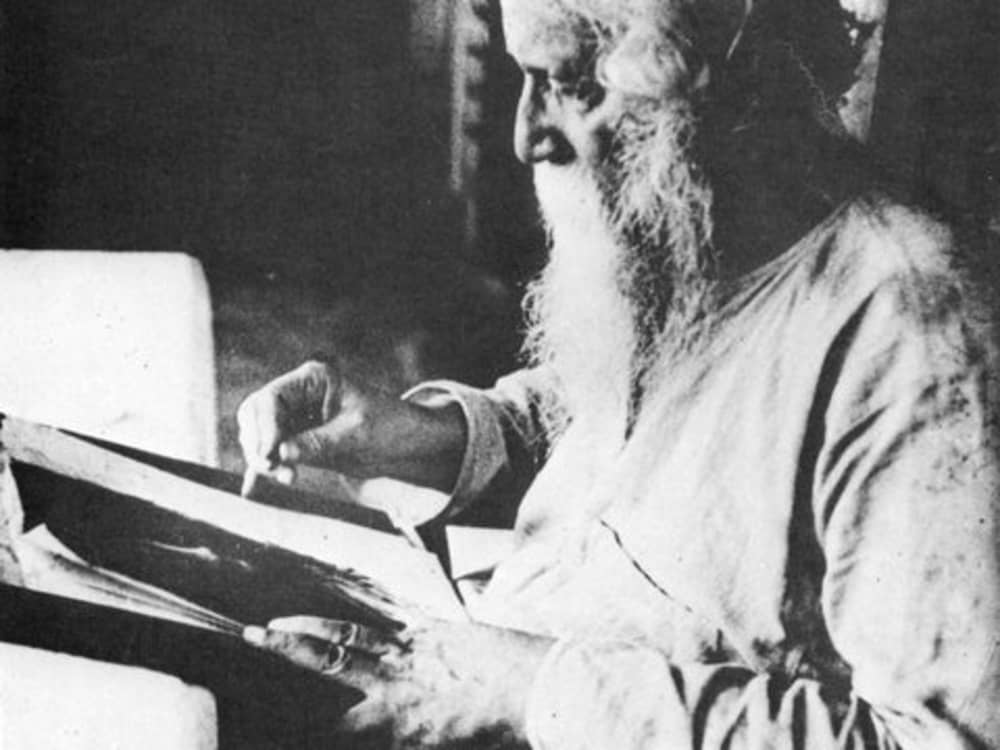 Rabindranath Tagore (1861-1941)
Rabindranath Tagore (1861-1941)
A fragment from American Robert Creeley's poetry crowns Musiqa's new concert "Free of the Ground", which unfolds at the Hobby Center Saturday night. Curious as to its origins, I embarked on a long arduous quest to find the source.
Luckily, there was Google yielding Gnomic Verses, a series of short pseudo-minimalist fragments, some serious, others nonsensical and many just delightfully puzzling. One of them reads:
Lift up so you're
Floating out
Of your skin at
The edge but
Mostly up seeming
Free of the ground.
Subtitled Air, the above strophe keeps readers guessing. Where does the each phrase begin, pause and end?
It's the writer's vagueness that piqued the interest of Musiqa co-founder, artistic director and composer Anthony Brandt, who parsed over much of Creely's work and selected prose from the poet's opus for his six-part song cycle Creeley Songs of 1999 — it's on the program for Saturday alongside Karim Al-Zand's Tagore Love Songs, Philippe Hurel's Tombeau In Memoriam Gérard Grisey and a world premiere ballet by Claudio Muñoz set to an arrangement of Argentine composer Astor Piazzolla's Tango Suite performed by Houston Ballet II — dedicated to Rice University's composer emeritus Ellsworth Millburn.
Music, Brandt thought, could add the framework, provide the context, the missing piece, the explanation.
Music and words
Before Brandt settles on any text, it has to hint at a sound world, without the necessity to be literal.
"Music is unique in that it is the only art form that propels us to get up and move, " Brandt says.
Elements of music like tempo, dynamics, pitch and inflection are what bestows an important layer of meaning to speech. As Brandt is just beginning to take on a research thesis on human's acquisition of verbal communication, this sort of interconnectivity is fresh in his psyche.
"Music and words are absolutely related," Brandt explains. "I hope to prove that children acquire language from the music slice of speech, then proceed to apprehend the meaning of it. The world begins as a concert.
"The implications of such sound come second. My theory is that music is the stepping stone from which language is acquired. Music then develops into its own art form."
Delving into the links between music, human development and neuroscience has been an obsession for Brandt. He is also the organizer behind the Exploring the Mind Through Music conferences at the Shepherd School of Music, where he serves as associate professor of composition and theory. The event brings together musicians, composers, academics, scientists, doctors and students together to incite dialogue in this still rather new field.
Al-Zand, also on faculty at Shepherd, was attracted by the musical qualities of Bengali renaissance man Rabindranath Tagore's verse. Tagore was a composer of many songs himself, so the inclusion of extra literary references in his writing is par for the course.
"The poetry also has a nice combination of structure and freedom," Al-Zand says, "They are set in free-verse, in a non-rhyming prose style, yet they contain frequent repetition and refrain-like structures within them.
"This combination is really conducive to a modern musical approach, with its preference for flexible phrase prosody, yet coupled with a need to bind the music motivically. It's part of the reason so many composers set Tagore."
Tagore Love Songs was written in 2004 for mezzo-soprano Aidan Soder and baritone Paul Busselberg, who will perform the piece at the concert. It's a quasi-narrative love story with one peculiar element.
"Like sports, contemporary music is one of those experiences where you don't know what's going to happen. If your local team lost, like the Astros, it doesn't mean that you will dismiss them."
"I set one of of the short poems twice, towards the end of the cycle, to show the two characters' very different feelings interpreted through the same words," Al-Zand says.
Music and dance
More literally, "Free of the Ground" nods to the nonprofit's collaboration with Houston Ballet II, always a favorite among those that crave aesthetic innovation. Muñoz's De Amor y de Muerte (Of Love and Death) is choreographed for four male and one female dancer.
"Music is unique in that it is the only art form that propels us to get up and move, " Brandt says. "What separates humans from other species is our ability to recognize steady beats and synchronize movement to rhythms."
Music and expectations
New is key, though in the art scene, sometimes new has the danger of scaring more conservative listeners away in favor of something more familiar. But when it comes to the new in every other area of life — think the newest handheld techie toy, faster bandwidth, latest fashions — we live in a have-to-have-that-today world.
"Free of the Ground" also means without expectations and Brandt advocate for that perspective when listening to contemporary art music, or experiencing any modern art in general.
"When approaching new music, it is best to invert your attitude completely, " Brandt says. "If you arrive with set expectations, you are most likely going to be disappointed. We are often wounded when those aren't met.
"Like sports, contemporary music is one of those experiences where you don't know what's going to happen. If your local team lost, like the Astros, it doesn't mean that you will dismiss them or give up on them. It's just part of the process."
Musiqa presents "Free of the Ground" Saturday at 7:30 p.m. at the Hobby Center for the Performing Arts. Tickets start at $20 and can be purchased online or by calling 713-513-2525.
